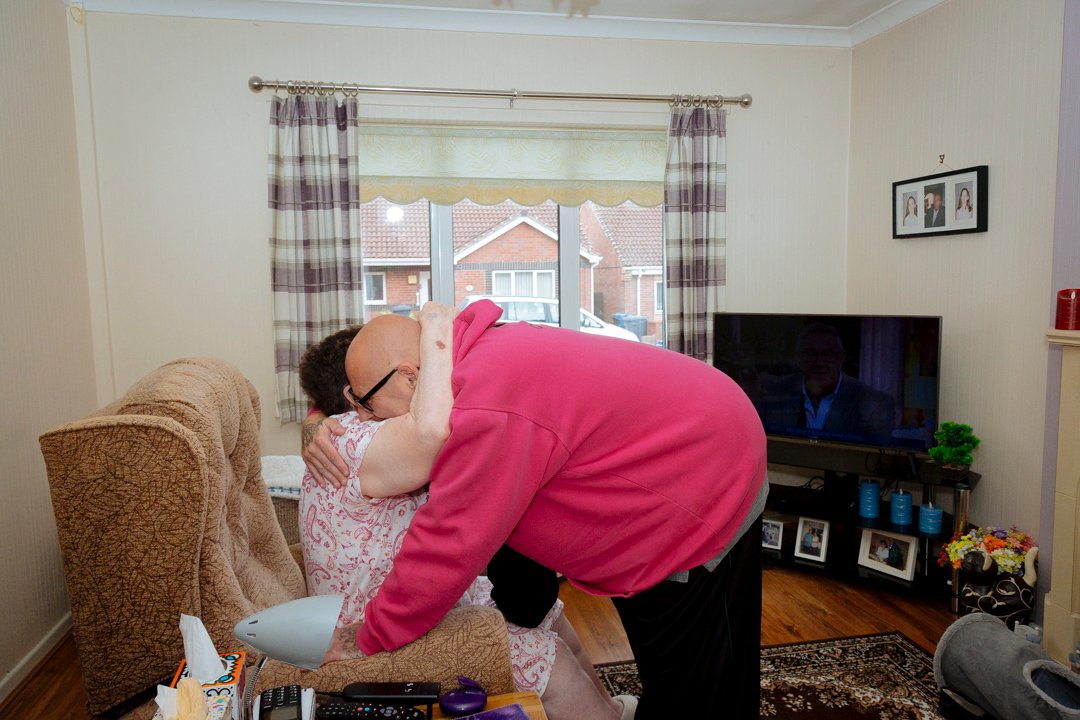Moving in circles: supporting carers navigating the care system
A national care strategy must put unpaid carers at its centre, supporting their choice to care or not through well-funded services, and valuing their skills to improve care quality.

Research, campaigns, and social investment across formal and informal care, including childcare and social care, exploring how to build a more caring society.
JRF wants to speed up a transition to an equitable future, free from poverty, where people and the planet can flourish. Care, family and relationships are central to this mission as we can’t build this future without properly valuing the act of care and making care systems fairer.
We’re here because someone took the time to care for us in childhood. We find meaning and wellbeing through caring for loved ones and in connecting with family, friends and our community. These relationships all act as a defence against insecurity and hardship by providing material or emotional support.
Our society should make use of the life-giving qualities of care, but currently we don’t appreciate its role. Child poverty, social isolation and loneliness, and the high cost of care (paid or unpaid) are just a few of the symptoms of this failure.
We’ll tackle this as part of our care programme through a mixture of policy and systemic change, both alone and in partnership. There are 3 aims of the programme.
We need to offset the financial impact of caring by giving people the choice to care alongside work and redistribute the responsibility for caring so the financial burden doesn’t fall primarily on women.
That means:
We need to redesign care markets to make use of the benefits of choice and flexibility while significantly improving outcomes for workers and people who need care.
Formal care services are a public good but they are not funded, managed or regulated as such in the current system. For example, public services like education and health are much better funded than care because we agree that we need a well-educated and healthy population. We don't do the same for care and this needs to change.
The act of doing paid or unpaid care is not appropriately valued in our labour market, and more broadly in society. We need to empower people who care, for example by giving care workers better pay and a platform to engage in debates about the future of the care system.
Care is invisible and forgotten, and so its benefits are overlooked. A care economy where care and relationships are valued requires us to measure and count the contributions of carers. For example, currently we don't measure the beneficial impact of parenting, whereas GDP measures count the value of going to work.
Empowering people who care intersects with the deep poverty and labour market work being carried out at JRF. Larger families are disproportionately impacted by poverty (with more mouths to feed and less incomes to feed them) so we need to make sure our social security system helps support them, while care is financially burdensome because it gets in the way of a person’s ability to work.
We can intervene through the labour market (for example, through leave policies) or by showing how more formal care will help people take on work.
While more fathers are caring for children and family members in our society than ever before, caring is still an act most often carried out by women in the home (whether for children or other loved ones). Care doesn’t fit easily around work, partly because the design of modern work is based around the needs of men who traditionally did not care, and so carries a financial penalty.
Undertaking care can push people into poverty, and unpaid carers are disproportionately more likely to be in poverty compared with those who don’t undertake unpaid care.
The bulk of responsibility to care is individualised, unevenly distributed and carries a financial penalty. Our own research on this ‘caring penalty’ has found the value of this penalty to be significant, amounting to a cumulative loss of more than £100,000 in gross pay over six years for mothers, and £30,000 over six years for unpaid social care givers.
Adjacent systems created to better risk-share household finances (like the Child Maintenance Service) aren’t fulfilling their role, with half of all single parent families in poverty.